The organic produce market in the US grew to over $50B in 2019 and $75B worldwide. There is clearly a market for organic produce, grain, meat and milk. In addition to produce there is a growing demand for organically grown cotton for textiles as well. Although a much smaller category, it is growing quickly.
There are many regulations defining how organic produce and cotton can be grown. These standards indicate what you cannot use, as much as they tell you what you can use. You cannot use synthetic fertilizers, herbicides or pesticides. And REQUIRE you to buy products that are certified for organic production. Organic farming is also the desire to harness nature to grow your crops using compostable organic wastes or animal manure as a fertilizer, diverse crop rotations and companion and/or cover crop use are encouraged to provide for healthy crops.
Whether organic or conventional, it all still starts with the soil……. Organic Farmers still need solutions to help repair sodic (salty) soils, minimize crusting and compaction, remediate against heavy metals and aluminum, and improve water infiltration into the ground so the roots have easy access to water and other nutrients. Better soil will also prevent water runoff and help capture carbon.
Using Mother Nature’s Technology to grow organically!
EcoGEM, LLC’s Soil Enhancer is a natural mineral certified for organic use by OMRI. It can solve the issues described above and meet the organic requirements for your crop. The results from applying EcoGEM’s Calcium Sulfate Dihydrate, the core component of Soil Enhancer can be dramatic.
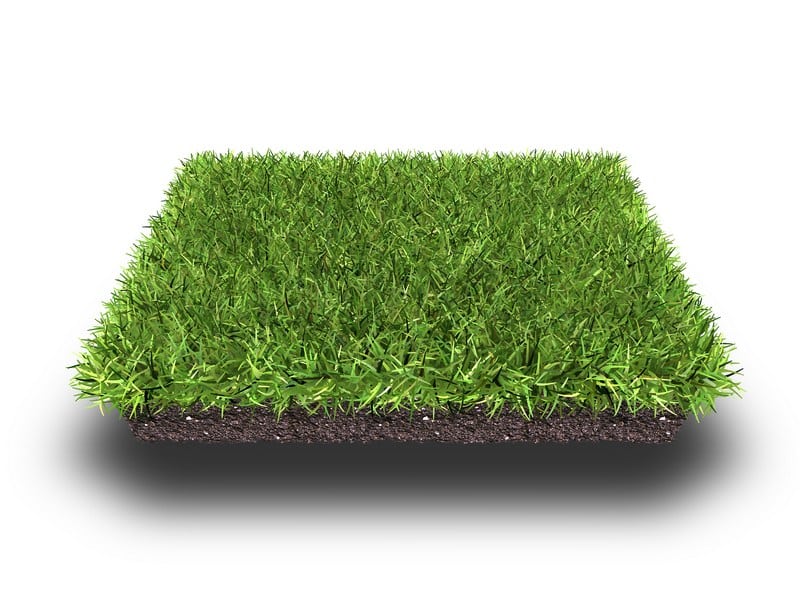
- I have soil high in sodium and/or magnesium. How do I correct that issue?
- EcoGEM’S ORGANIC Soil Enhancer, primarily made of Calcium Sulfate Dihydrate is the most commonly used natural solution for improving sodic soils. The product leaches sodium which reduces swelling and cracking in destructive high sodium and magnesium soils 1.
- My soil is very bulky, compact and or is crusty. How can I repair that?
- EcoGEM’S Soil Enhancer flocculates the soil – binds the clay into loosely aggregated pods, which decreases soil bulk density and improves porosity2. This creates microscopic channels which improves air movement, facilitates root growth, and enhances water infiltration. The improved water infiltration will reduce irrigation water requirements3.
- I am an organic farmer and cannot apply synthetic fertilizers or chemicals on my field. Can you help me increase crop yield?
- EcoGEM’s Soil Enhancer is certified for Organic use by OMRI







- I am trying to reduce my organic fertilizer usage and reduce overall costs as a result while improving the environment. How is it possible to do that?
- EcoGEM’s Soil Enhancer is highly effective when used with organic fertilizers. With regular use, EcoGEM’s Soil Enhancer improves the porosity of the soil allowing more of the organic fertilizer you do use to reach the root zone. This can help you reduce fertilizer application requirements because they are being more efficient, while providing the same results5.
- My soil is compacted and/or crusty. This causes puddling after rainfall or irrigation. I want to minimize this to ensure water is not lost to evaporation or runoff.
- EcoGEM’s Soil Enhancer reduces puddling, ponding, and wet spots because 6,7,it flocculates the soil – binds the clay into loosely aggregated pods, which improves water infiltration and water retainage in the pods. This captures the water, minimizing the puddling and allow you to have access to fields much quicker in wet conditions. Just as importantly, this helps prevent water, nitrogen and phosphorous runoff while helping to mimimize erosion. This is an excellent solution for no-till farming where these problems of runoff, erosion and crusting are common8.
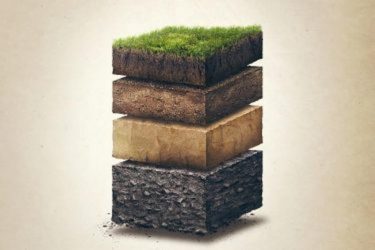
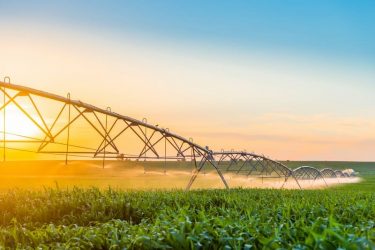
- My irrigation water is high in sodium and chlorine which damages my soil. Is there a way to reduce these minerals and chemicals?
- EcoGEM’s Soil Enhancer displaces mineral salts like sodium and chlorine found in most irrigation water (high in bicarbonates) out of the root zone minimizing the impact on soil damage. It also prevents sodium and chlorine from being absorbed into the plant9,10.






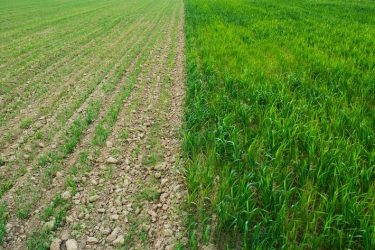
Does this have the potential to burn my crops such as when too much lime is applied? No, EcoGEM Soil Enhancer will not harm plants or soil. It is also animal and kid friendly.
Is this better than planting a cover crop or do I still need to do that?
EcoGEM Soil Enhancer should be used with cover crops, but may be used separately as well.
- I am trying to reduce my organic fertilizer usage and reduce overall costs while improving the environment. Is it possible to do that?
- EcoGEM’s Soil Enhancer is highly effective when used with organic fertilizers. With regular use, EcoGEM’s Soil Enhancer improves the porosity of the soil allowing more of the fertilizer you do use to reach the root zone. This can help you reduce the organic fertilizer requirements because they are being more efficient, while providing the same results.
My costs are sky rocketing. I need to reduce input costs but maintain yields. How do I do this while applying your product, which has a cost too?
- I’m hearing a lot about Carbon Capture and other greenhouse gasses. Can your product help me capture carbon or reduce greenhouse gasses?
- Improving the soil structure of your field enhances microbe development. These microbes in the soil process carbohydrates, release CO2 back into the atmosphere and store carbon in soil aggregates12. Plants take up Carbon Dioxide through photosynthesis and convert the CO2 into carbohydrates that move through the plant root system into the soil. Because the Calcium Sulfate Dihydrate provides vital nutrients of Ca and S, the plant will be healthier and better able to absorb more carbon through photosynthesis. EcoGEM’s Soil Enhancer improves the soil’s structure and health which creates healthier plants and increases the amount of carbon that can be captured.
- This is important, because carbon capture can become a new revenue stream for you. You will need to demonstrate verifiable improvements in carbon capture. EcoGEM’s Soil Enhancer is an enabler to help you do so.
All of these opportunities enhance sustainable farming. These solutions promote soil health, crop health, and help mitigate against erosion, minimize water usage requirements, reduce runoff, and help capture greenhouse gasses. EcoGEM’s Soil Enhancer is a natural mineral and certified for organic use.




Chances are it is an appropriate way to improve the health of your soil, since it has been used in agriculture over hundreds of years for nearly all crops and Calcium Sulfate Dihydrate is currently applied extensively in many areas of the world.
Once you have reviewed the science and discussed your soil situation with one of our representatives, EcoGEM Soil Scientists will review your soil analysis and recommend the proper application rates. Contact us at (303) 500-6944
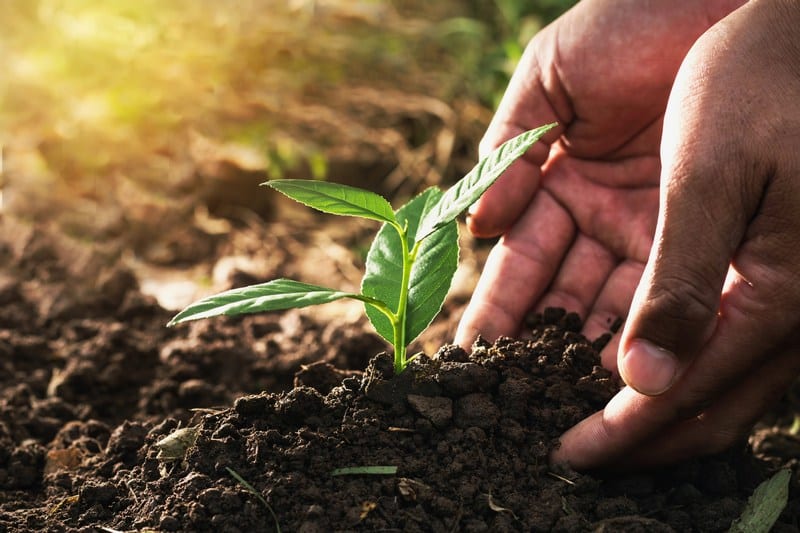


Organic Farming
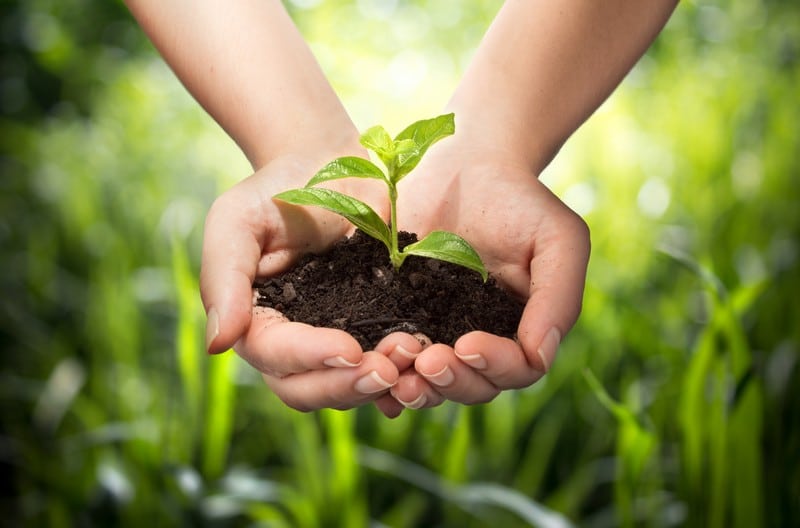
Organic farming is a system of management and agricultural production that combines high levels of biodiversity with environmental practices that preserve natural resources. Compared to traditional agriculture, organic farming uses less pesticides, decreases nitrate leaching into groundwater and reduces soil erosion.
At EcoGEM, we recognize the growing popularity for organic farming. If you are curious about organic farming as it supports healthy soil, offers more nutrition, supports pollinators, is climate-friendly and takes future generations into account, we have the organic farming products that you want.
Organic farming does not allow the growth or production of genetically modified organisms. With organic farming, we recognize the importance of good soil health and the results between soil protection and healthy plants.
Come to us when you are look for:
- Integrated organic farming
- Pure organic farming
- Organic farming products
- Economical organic farming
When you need organic farming products, get in touch with EcoGEM. We have exactly what you are looking for.
(303) 500-6944
Organic Agriculture

Organic agriculture is the desire to harness nature and consider the long term effects of interventions on the agro-ecosystem. The productivity of plants is directly related to the activity level of the microorganisms found in the soil. Without the necessary microbes found in our organic agriculture products, the soil will soon become hard and compact. This results in oxygen and water not being readily absorbed and the roots being underdeveloped. The key to healthy, profitable plant production is found in the organic agriculture products that we offer.
There is a host of benefits when it comes to chemical-free products. With the continual rise of organic agriculture products, we are ready to meet your organic farming needs. Our organic agriculture team is ready to answer any questions that you have. We are ready to help you with climate-friendly products that support a healthy soil.
We offer solutions for organic agriculture when it comes to:
- Repairing salty soils
- Minimizing crusting
- Decreasing compaction
- Remediating against heavy metals
Turn to the experts for organic agriculture at EcoGEM today and give us a call for your questions.
(303) 500-6944
Organic Farms
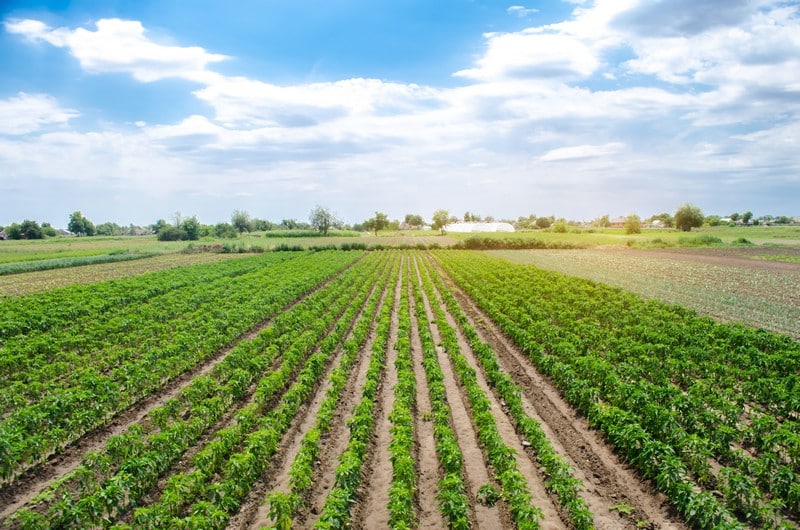
With organic farms, there are many regulations defining how organic produce can be grown. Organic farms are told what they cannot use, like herbicides, pesticides and synthetic fertilizers. Organic farms are also required to purchase products that are certified for organic production.
We provide products for:
- Produce organic farms
- Grain organic farms
- Milk organic farms
- Meat organic farms
For your questions and needs regarding organic farms, give EcoGEM a call.
(303) 500-6944




1https://www.sciencedirect.com/.../saline-sodic-soils
2Liming Chen and Warren Dick; 2011from "Gypsum as an Agricultural Amendment. http://ohioline.osu.edu/b945/b945.pdf"
3 Dr. Brent Rouppet, Ph.D. states, “Calcium Sulfate enhances water use efficiency so 25 to 100 % more water is available in calcium sulfate-treated soils compared to untreated soils. Therefore, less irrigation water is required to achieve the same results.”
4Dr. L. Oldham (2019) Secondary Plant Nutrients: Calcium, Magnesium, and Sulfur. Mississippi State University Extension, MS 39762. Information Sheet 1039 (POD-07-19)
5Batte, M., Forster, D. (2015) Old is new again: The Economics of agricultural Gypsum Use. 2015 Journal of ASFMRA.
6O’Brien, D. (2017) Using Gypsum to Help Reduce Phosphorus Runoff, USDA Agriculture Research Service-Research and Science Feb 21, 2017
7 Liming Chen and Warren Dick; 2011from "Gypsum as an Agricultural Amendment. http://ohioline.osu.edu/b945/b945.pdf"
8Oster J.D., (1982) Gypsum usage in irrigated agriculture: A review. Fertilizer Research 3, pp73-89 (1982).
9 O’Brien, D. (2017) Using Gypsum to Help Reduce Phosphorus Runoff, USDA Agriculture Research Service-Research and Science Feb 21, 2017
10Oster J.D., (1982) Gypsum usage in irrigated agriculture: A review. Fertilizer Research 3, pp73-89 (1982).
11 Batte, M., Forster, D. (2015) Old is new again: The Economics of agricultural Gypsum Use. 2015 Journal of ASFMRA.
12Carbon 180: Leading with Soil, pg. 10
13Maathuis F.J.M. (2009) Physiological functions of Mineral Macronutrients. Current Opinion in Plant Biology 12:250-258




